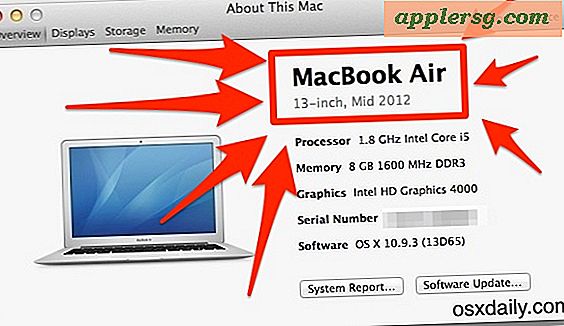

- #HOW MUCH MEMORY DO I NEED FOR OS X YOSEMITE HOW TO#
- #HOW MUCH MEMORY DO I NEED FOR OS X YOSEMITE INSTALL#
- #HOW MUCH MEMORY DO I NEED FOR OS X YOSEMITE UPGRADE#
- #HOW MUCH MEMORY DO I NEED FOR OS X YOSEMITE PRO#
- #HOW MUCH MEMORY DO I NEED FOR OS X YOSEMITE PC#
Save Dialogs Expand Offscreen - Have you ever tried to save a document, only to find that you can’t see the Save button because it’s off the screen? A bug in Yosemite can apparently make Save dialogs grow in height by 22 pixels each time one is opened. You can re-enable AWDL and AirDrop without rebooting by entering this line in the Terminal.Ģ. If you see the error message “ifconfig: interface awdl0 does not exist,” you have older hardware that doesn’t support AWDL. (Unfortunately, it doesn’t persist between reboots, so you’ll have to apply the fix every time you reboot your Mac.) Copy the line below and, at the command line in Terminal, paste it, press Return, and enter your password. But when it works over AWDL, it appears to strain the hardware, hurting performance.įortunately, it’s easy to disable AWDL, but the fix also disables AirDrop and requires working at the command line. In the past, Bonjour was used only over standard Wi-Fi networks or Bluetooth. AWDL is a low-latency, high-throughput, peer-to-peer connection that runs over Wi-Fi but has its own dedicated network interface (much like general Wi-Fi or Ethernet). What he discovered is that in Yosemite, Macs are using Bonjour over Apple Wireless Direct Link (AWDL) to discover devices to connect to for AirDrop, AirPlay, and other services. We were puzzled by these problems, none of which we experienced personally, but developer Mario Ciabarra believes he has found an explanation for at least some of the problems. Miscellaneous Wi-Fi Issues - Since the launch of Yosemite, we’ve heard hundreds of complaints about various Wi-Fi connectivity issues: spotty connections, slow speeds, high latency, and more. And remember, since it’s one of our new Crash Courses, you can read it online for free!ġ.
#HOW MUCH MEMORY DO I NEED FOR OS X YOSEMITE HOW TO#
If you’re just getting started with Yosemite, be sure to check out Scholle McFarland’s “ Yosemite: A Take Control Crash Course” for information about what’s new and how to take advantage of Yosemite’s new features. Here then is a collection of five problems and solutions (or at least workarounds) that we’ve either experienced or had reported to us. OS X 10.10.1 Yosemite has been out for a bit now, though, and while it’s working fine for many people, there are still a variety of complaints making the rounds on the Internet (for what was fixed, see “ Apple Releases OS X 10.10.1, iOS 8.1.1, and Apple TV 7.0.2,” 17 November 2014). It’s common advice to wait for the X.Y.1 release of a new version of OS X before upgrading, since Apple often fixes bugs that crop up at launch quickly.
#HOW MUCH MEMORY DO I NEED FOR OS X YOSEMITE PRO#
#HOW MUCH MEMORY DO I NEED FOR OS X YOSEMITE UPGRADE#
#HOW MUCH MEMORY DO I NEED FOR OS X YOSEMITE INSTALL#
M1, you might be asked to install Rosetta in order to open the SD Card Formatter.Īdministrator Rights is required for Windows and Mac OS/macOS to execute SD Memory Card Formatter. Note: If you have a Mac with Apple silicon, e.g. Please format the SD/SDHC/SDXC Card after it has been unlocked. The SD Memory Card Formatter doesn’t support SD/SDHC/SDXC Card encrypted by the “BitLocker To Go” functionality of Windows.
#HOW MUCH MEMORY DO I NEED FOR OS X YOSEMITE PC#
The protected area shall be formatted by an appropriate PC application or SD host devices that provide SD security function. The SD Memory Card Formatter does not format the protected area in the SD/SDHC/SDXC Cards. SD/SDHC/SDXC Cards have a “Protected Area” for SD Card security purposes. In general, formatting tools provided with operating systems can format various storage media including SD/SDHC/SDXC Cards, but it may not be optimized for SD/SDHC/SDXC Cards and it may result in lower performance. It is strongly recommended to use the SD Memory Card Formatter to format SD/SDHC/SDXC Cards rather than using formatting tools provided with individual operating systems. The SD Memory Card Formatter formats SD Memory Card, SDHC Memory Card and SDXC Memory Card (respectively SD/SDHC/SDXC Cards) complying with the SD File System Specification created by the SD Association (SDA).

SD Memory Card Formatter 5.0.1 for SD/SDHC/SDXC


 0 kommentar(er)
0 kommentar(er)
